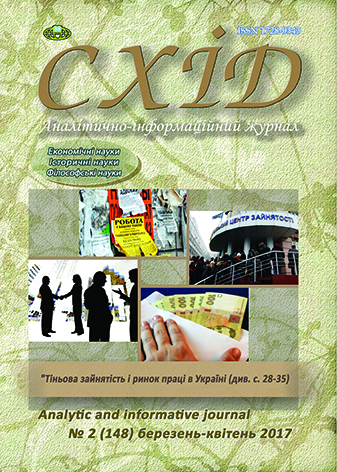The review of Julian Jaynes' conception of consciousness
DOI:
https://doi.org/10.21847/1728-9343.2017.2(148).102813Keywords:
consciousness, metaphor, natural language, philosophy of mind, psychologyAbstract
The study reviews the Julian Jaynes' hypothesis that explains the origins of consciousness; it is so called "Bicameralism" or "Philosophy of bicamerality". The hypothesis is a combination of four hypotheses. According to the first hypothesis consciousness is considered as that what is based on natural language and is a functional mind-space, that is, a subjective conscious mind based on metaphors. For the explanation of a metaphor Julian Jaynes created his own conception of metaphor within the framework of which a metaphor is considered as a mental action expressed in words through a paraphrasing and consists of two elements - metaphier and metaphrand. Moreover, consciousness has the following characteristics: 'I', concentration, suppression, and consilience. According the second hypothesis the other mentality (the bicameral mind) preceded consciousness in evolution and history. The bicameral mind is based on auditory verbal hallucinations. According the third hypothesis about 1200 BC there was a breakdown of the human being bicameral mind that caused the origination of human being consciousness. Under the fourth hypothesis the bicameral mind was resulted by the double brain, a state of cerebrum by which experiences and memoirs of the right cerebral hemisphere were transmitted into the left cerebral hemisphere by the means of auditory verbal hallucinations because each normal cerebral hemisphere was constantly communicated with another one through corpus callosum. In view of the fact that some changes within corpus callosum were occurred the breakdown of the bicameral mind and the origination of consciousness came to pass.
Downloads
References
Podzolkova, N. A. & Shershnev, E. L. (2012). The Bicameral Mind and the Platonic Transformation of Consciousness. The World of Science, Culture, Education. № 1(32), pp. 277-279 (rus).
Cavanna, A. E. & Cinti, F. & Monaco, F. & Trimble, M. (2007). The “Bicameral Mind” 30 Years on: a Critical Reappraisal of Julian Jaynes’ Hypothesis. Functional Neurology. № 1(22), pp. 10-15.
Asaad, G. & Shapiro, B. (1987). Drs. Asaad and Shapiro Reply. American Journal of Psychiatry. Vol. 144. № 5, p. 696. DOI: 10.1176/ajp.144.5.696-c
Fauconnier, G. & Turner, M. (2003). The Way We Think: Conceptual Blending and the Mind’s Hidden Complexities. Basic Books, New York.
Jaspers, K. (1953). The Origin and Goal of History. Yale University Press, New Haven.
Jaynes, J. (1986). Consciousness and the Voices of the Mind. Canadian Psychology. № 2, pp. 128-148. DOI: 10.1037/h0080053.
Jaynes, J. (2000). The Origin of Consciousness in the Breakdown of the Bicameral Mind. A Mariner Book, Boston; New York.
Lakoff, G. & Johnson, M. (2003). Metaphors We Live By. University of Chicago Press, Chicago. DOI: 10.7208/chicago/9780226470993.001.0001.
Mulaik, S. A. (1995). The Metaphoric Origins of Objectivity, Subjectivity, and Consciousness in the Direct Perception of Reality. Philosophy of Science. № 2, pp. 283-303. DOI: 10.1086/289857.
Saussure F., de. (2011). Course of General Linguistics, Columbia University Press, New York.
Downloads
Published
How to Cite
Issue
Section
License
Copyright (c) 2017 Konstantin Rayhert

This work is licensed under a Creative Commons Attribution-NonCommercial-NoDerivatives 4.0 International License.
1. Authors bear responsibility for the accuracy of facts, quotations, numbers and names used.
2. Manuscripts are not sent back.
3. The publisher does not always agree with the authors' opinion.
4. The authors reserve the right to authorship of the work and pass the first publication right of this work to the journal under the terms of a Creative Commons Attribution-NonCommercial-NoDerivatives 4.0 International License. This license allows others to distribute (copy) the published work for non-commercial purposes, provided there is mandatory attribution to its authors and a link to the first publication in our journal.
5. The authors have the right to conclude separate supplement agreements that relate to non-exclusive work distribution in the form in which it has been published by the journal (for example, to upload the work to the online storage of the journal or publish it as part of a monograph), provided that the reference to the first publication of the work in this journal is included.

